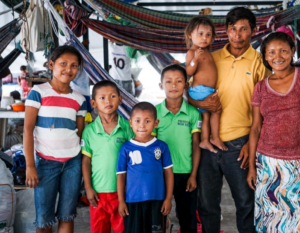Australia to take Venezuelan refugees as crisis escalates
The number of people who have fled Venezuela, which is suffering from political chaos, food shortages and hyperinflation, has now topped 4 million, according to the United Nations.
The UN has called the exodus of refugees and migrants “largest in the recent history of Latin America and the Caribbean”.
“The pace of the outflow from Venezuela has been staggering,” the UN’s refugee agency UNHCR and the International Organisation for Migration said in a joint statement.
The numbers make it clear that the rate of people departing is escalating. The UN says a million people have left since November 2018.
The new numbers have emerged as the Australian government moves to give higher priority to migrants and refugees from South America, particularly as result of the humanitarian crisis in Venezuela.
Immigration officials have been told to open the door to more refugees from South America in a formal directive that is likely to change the make-up of the annual 18,750 humanitarian intake from next month.
More than half the refugees who come to Australia each year are from Iraq and Syria, an arrangement that is not expected to change as a result of the minister’s decision.
Australia accepted 4630 refugees from Iraq and 3227 from Syria in the year to June 2018, with another 2043 from Myanmar, 1355 from the Democratic Republic of the Congo and 1130 from Afghanistan.
This followed a one-off intake of 12,000 refugees from Iraq and Syria, announced by former
While no target has been announced on the intake from South America, it is expected to amount to several hundred people and could mean Venezuela joins the list of top 10 countries of birth for humanitarian visas issued in the years ahead.
This is a departure from the decades-long practice of accepting almost all humanitarian entrants from Africa, Asia and the Middle East.
“The pace of the outflow from Venezuela has been staggering. From some 695,000 at the end of 2015, the number of refugees and migrants from Venezuela had skyrocketed to over 4 million by mid-2019, according to data from national immigration authorities and other sources,” the UN statement said.
“In just seven months since November 2018, the number of refugees and migrants increased by one million.
“Latin American countries are hosting the vast majority of Venezuelans, with Colombia accounting for some 1.3 million, followed by Peru, with 768,000, Chile 288,000, Ecuador 263,000, Brazil 168,000, and Argentina 130,000. Mexico and countries in Central America and the Caribbean are also hosting significant numbers of refugees and migrants from Venezuela,” the statement said.
“These alarming figures highlight the urgent need to support host communities in the receiving countries,” it said.
In November, eight countries from the region met in Quito and signed an agreement to work together to work together on a humanitarian response to the refugee and migrant influx.
Meanwhile, death threats, disease and food shortages are driving more refugees to flee.
Many of the exiles have reported being targeted by government death squads for speaking out against Venezuela’s socialist President Nicolas Maduro.
UNHCR reported the story of Venezuelan doctor ‘Jose’ and his wife Yurmi who volunteered with local communities in the city of Barquisimeta.
They were forced to flee with their seven-month-old baby when Jose was threatened with execution.
“The person that was paid to kill me was one of my closest patients,” Jose told UNHCR.
“He said that he would have accepted the US$790 he was offered to take my life if he hadn’t been so grateful to me for treating his relatives,” he said.
“It is a lot of money. Anyone would have taken that offer.”
Jose and Yurmi are now living in a shelter in Bogotá, Colombia, supported by UNHCR.












